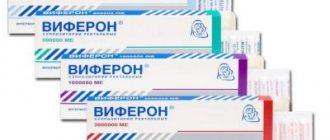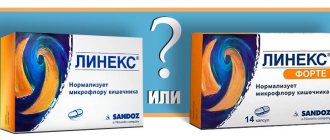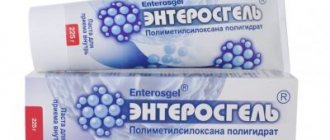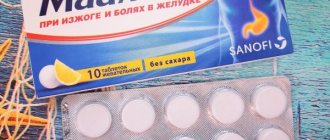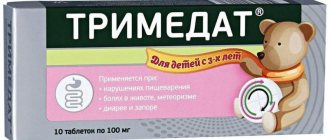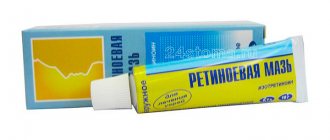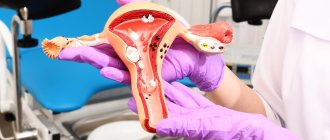Arbidol is an effective medicine that copes with viral infections and stimulates the immune system. The antiviral effect is based on preventing the connection of the virus shell and cell membranes. Despite the effectiveness of this drug, there is often a need to find analogs that are cheaper than arbidol.
Thanks to taking the drug, it is possible to prevent the connection of the lipid membrane of viruses with cell membranes. The medicine is an interferon inducer and helps to activate immune responses, increasing resistance to viral infections. The use of the product helps reduce the incidence of complications that may follow a viral infection.
Indications for use of the product include the following:
- prevention and treatment of influenza and viral infections;
- complex treatment of chronic bronchitis, pneumonia and herpes infection, which periodically worsens;
- prevention of postoperative complications and restoration of immunity in children.
Arbidol can be used by adult patients and children over 2 years of age. The product can be used during pregnancy and lactation. To cope with the disease, you need to take the medicine half an hour before meals. The dosage depends on the age category:
- at 2-6 years old, 50 mg of the drug is indicated;
- children 6-12 years old can drink 100 mg of the substance;
- For adult patients and children over 12 years of age, 200 mg is indicated.
Characteristics of Arbidol
Arbidol is a drug that directly reduces the reproduction of viral particles. It can kill viruses such as H1N1, H5N1, coronaviruses, rhinoviruses, adenoviruses, PC virus, parainfluenza pathogen. Arbidol is produced in the form of tablets (50 mg), capsules (200, 100 mg), powder (25 mg per 5 ml).
Indications for the use of Arbidol:
- therapy of viral pathologies in children and adults (influenza, parainfluenza, respiratory syndrome).
- treatment of pneumonia, bronchitis caused by viral agents;
- herpetic pathology;
- prevention of infections after surgical treatment.
Arbidol can be used in powder form in patients 2 years of age and older. Capsules are indicated for patients over 12 years of age. Tablet forms of Arbidol can be prescribed for patients from 3 years of age.
Restrictions on the use of Arbidol:
- tablet forms are not used in children under 3 years of age, as well as in pregnant patients and women breastfeeding;
- capsules are not used in children under 3-6 years of age, during breastfeeding and pregnancy (1st trimester);
- the powder is used carefully in patients with SARS (treatment and prevention), not used in children under 2 years of age;
- The drug is not indicated for allergies to its components (for all forms of the drug).
The cost of Arbidol is 244–1075 rubles. The drug has a relatively high cost. The effectiveness of Arbidol is good.
Composition and release form
Powder for the preparation of a suspension for oral administration, granular, white or almost white, with a characteristic fruity odor;
the prepared suspension is homogeneous, white or white with a yellowish or creamy tint, with a characteristic fruity odor. Composition 5 ml:
- umifenovir hydrochloride monohydrate - 25.88 mg,
- which corresponds to the content of umifenovir hydrochloride - 25 mg
Excipients: sodium chloride - 26.85 mg, maltodextrin (kleptose linecaps) - 750 mg, sucrose (sugar) - 840.42 mg, colloidal silicon dioxide (Aerosil) - 24.6 mg, titanium dioxide - 25 mg, pregelatinized starch (type PA5PH) - 129.5 mg, sodium benzoate - 9.25 mg, banana flavor - 12.4 mg, raspberry flavor - 6.1 mg.
37 g - dark glass bottles with a capacity of 125 ml (1) complete with a measuring spoon - cardboard packs.
Types of drugs that can replace Arbidol
Arbidol has a large number of analogues. You can take other antiviral drugs instead of Arbidol. These include interferon inducers or interferons and other antiviral agents.
Cheap analogues of Arbidol:
- Rimantadine - 43–235 rubles;
- Anaferon - 201–335 rubles;
- Ribavirin - 80–229 rubles;
- Nobasite (288-364 rubles);
- Kagocel - 229–511 rubles;
More expensive analogues of Arbidol include: Ingavirin (385-522 rubles), Amizon (273 - 589 rubles), Aflubin (297-532 rubles), Viferon (149-1132 rubles), Cycloferon - 180 - 963 rubles, Ergoferon (332 - 464 rubles), Afludol (179–659 rubles), Amiksin (500–1140 rubles), Lavomax (240–973 rubles). The most popular analogue of Arbidol for children is Anaferon. Children are also prescribed Viferon, Kagocel, Groprinosin.
List of children's products (cost):
- Anaferon for children - 216–335 rubles;
- Viferon - 310–1098 rubles;
- Kagocel - 229–511 rubles;
- Groprinosin - 590–1716 rubles.
Rimantadine
A cheap substitute for Arbidol is Rimantadine. It is one of the first drugs against viral infection. The analogue is indicated for viral pathologies. According to the instructions, the drug can be prescribed during influenza epidemics, as well as for the treatment of tick-borne encephalitis in patients over 7 years of age.
The drug is produced in tablet forms (50 mg) and capsules (100 mg). Remantadine has a drawback. It is not suitable for patients under 7 years of age. The drug is not indicated for therapy in patients with liver disease, kidney disease, arterial hypertension, and epilepsy. The drug can cause exacerbation of chronic diseases, an attack of epilepsy (seizure).
The analogue is not recommended for simultaneous use with antipyretics, since the effectiveness of Rimantadine is reduced. The drug, when used with antiepileptic drugs, can provoke an attack by reducing the effectiveness of anti-epileptic drugs.
Medicinal properties of Arbidol
The drug successfully fights influenza and other respiratory diseases, enhancing cellular immunity. The medicine prevents viruses from penetrating healthy cells, prevents complications that are dangerous for the flu, shortens the duration of illness, and alleviates symptoms. If dosages are observed, it usually does not have a negative effect on the body. It is effective against:
- rhinoviruses;
- PC viruses;
- parainfluenza;
- strains of bird and swine flu;
- adenoviruses;
- coronaviruses.
Arbidol is available in the form:
- powder – dosage 25 mg;
- tablets – dosage 50 mg;
- gelatin capsules - dosage 100, 200 mg.
The medicine is prescribed to adults and children over 2 years of age. Younger children are given Arbidol powder; tablets can be prescribed from the age of 3; capsules are indicated from the age of 12.
Indications for the appointment of Arbidol are:
- treatment and prevention of influenza and other viral infections;
- participation in a complex of therapeutic measures against pneumonia, chronic bronchitis, exacerbations of herpes;
- prevention of postoperative complications;
- returning children to normal levels of immunity.
Usually, no side effects occur during treatment with the drug, but the drug is absolutely contraindicated in case of allergic reactions to the components of the drug and in the 1st trimester of pregnancy. With great caution and only as prescribed by a doctor, Arbidol is included in the complex treatment of women in the 2nd and 3rd periods of pregnancy. Its use is allowed when the predicted benefit to the mother outweighs the risk to the health of the fetus. The same criterion applies during breastfeeding. Problems with the cardiovascular system, kidney disease, and liver also require a comprehensive assessment by the specialist prescribing Arbidol.
Ribavirin
An analogue of the drug Arbidol is Ribavirin. The product is cheap. More suitable for hepatitis C as part of general therapy, as well as for eliminating herpetic infections. The medicine can also be used for respiratory viral pathologies. The analogue helps prevent further proliferation of viral particles. This helps reduce the severity of the disease.
The product is indicated only for adult patients. It is not used in pediatric practice. The analogue has a large number of side effects, so it should not be prescribed during pregnancy or breastfeeding. The drug is not prescribed for heart disease, anemia, severe kidney pathologies, liver cirrhosis, autoimmune diseases, and thyroid pathologies.
Arbidol or Tsitovir
Manufacturer: Cytomed, Russia
Release form: capsules, syrup for children, powder for the preparation of solution for oral administration
Active ingredient: Alpha-glutamyl-tryptophan + Ascorbic acid + Bendazole
The analogue Cytovir 3 is a complex drug consisting of two immunomodulators and the antioxidant ascorbic acid, which in combination enhance each other’s effect.
The drug is successfully used for the treatment and prevention of influenza, especially in pediatric practice.
Nobasite
An analogue of Arbidol is Nobasit. It is used to treat viral infections (flu, other acute respiratory viral infections). The drug is able to prevent viral particles from entering cells. The analogue prevents viruses from passing through the membrane of cellular structures, which reduces their reproduction. The drug helps increase the production of interferons (alpha, gamma) in the patient’s body, thereby shortening the duration of the disease.
The medicine is not used in patients under 18 years of age. It should not be prescribed to pregnant and lactating patients. The drug is not indicated for liver and kidney diseases. The drug should not be used if you have allergic pathologies or allergies to the drug itself.
Arbidol or Cycloferon - which is better?
Manufacturer: POLYSAN, Russia
Release form: film-coated tablets
Active ingredient: Meglumina acridone acetate
Cycloferon is an analogue of Arbidol for adults and children over 4 years of age, used not only for the treatment of influenza and ARVI, but also infections caused by the herpes virus.
The mechanism of action is the induction of interferon. In addition, the analogue Cycloferon suppresses the reproduction of the virus in the early stages.
Anaferon
Anaferon is a good and inexpensive analogue of Arbidol. The drug contains antibodies to interferon gamma. The analogue is approved for use in children and adults. The medicine can be used in children from 1 month of age. A child's uniform must be assigned to the child.
Restrictions on the use of the product include only allergies to the components of the drug. Anaferon is a relatively safe remedy for combating viral diseases, as it has virtually no side effects.
Ergoferon or Arbidol which is better
Manufacturer: Materia Medica, Russia
Release form: lozenges
Active ingredient: antibodies to interferon, histamine and CD4 lymphocytes
The analog Ergoferon is more effective than Arbidol, because, thanks to its unique composition, it has both an immunostimulating and antihistamine effect, and also relieves inflammation. It has been successfully used to treat many acute respiratory viral infections for both adults and children, starting from the age of six months.
This analogue is cheaper than Arbidol; for adults and children, one package is enough for a minimum course of treatment.
Kagocel
Instead of Arbidol, you can use Kagocel. This is an analogue that refers to interferon inducers. It stimulates the formation of its own interferons, which trigger immune reactions against viruses. The drug has an average cost and is produced in tablet form. Sold in pharmacies without a doctor's prescription.
The analogue can be used in children from 3 years of age, as well as in adults. The drug is not used for long. The course of therapy is 4 days. This is an advantage, since many patients do not follow the doctor's recommendations if the course of treatment is too long.
The analogue can be used even in advanced forms of the disease. But it is better to start using it at the initial stage of a viral disease. This will prevent complications from occurring.
Trekrezan or Arbidol - which is better?
Manufacturer: Usolye-Sibirsky Chemical Plant, Russia
Release form: tablets
Active ingredient: Hydroxyethylammonium methylphenoxyacetate
Synonyms: Trecresil, Trecrezolide
The Trekrezan analogue belongs to the group of general tonic adaptogens. Stimulates the production of interferons, strengthens the immune system, increases the body's resistance to diseases, harmful environmental factors, and the effects of toxins, including alcohol.
This analogue is cheaper than Arbidol; for children over 12 years of age and adults, a package of 10 tablets is enough for a course of treatment.
Trecrezan is best used not as an analogue of Arbidol, but in combination - for the treatment of influenza and during the recovery period after recovery.
Amiksin
Arbidol can be replaced with Amiksin. It belongs to the interferon inducers. The product stimulates the formation of its own interferons (alpha, beta, gamma). The drug increases immune defense and increases the production of leukocytes. Produced in tablet form.
The analogue is indicated for the treatment of respiratory viral pathologies, viral hepatitis A, B, C. The drug can be used for herpes infection, as well as cytomegalovirus pathology. The drug is indicated for patients with encephalomyelitis of a viral and allergic nature. An analogue is also prescribed for chlamydia and tuberculosis.
The drug is produced in tablet forms. The analogue is approved for use in patients over 7 years of age. In children, the drug is used only for the treatment of respiratory viral diseases.
The analogue is not indicated for pregnant and lactating patients. The drug should not be used in children under 7 years of age. Amiksin is not prescribed for patients with allergies to its components.
Review of cheap analogues
There are a variety of analogues of arbidol. However, choosing inexpensive drugs is quite difficult, since antiviral drugs are quite expensive.
- remantadine - a package of 20 tablets with a dosage of 50 mg will cost 190 rubles;
- cycloferon - 10 tablets with a dosage of 150 mg cost approximately 160 rubles;
- anaferon - 20 tablets of the drug will cost approximately 210 rubles;
- ribavirin - 30 tablets of the substance 200 mg cost 160 rubles;
- amizon - 10 tablets of 250 mg cost about 200 rubles;
- aflubin - 12 tablets will cost 210 rubles.
The instructions for arbidol analogues confirm that they all have different active ingredients, but produce an immunomodulatory and antiviral effect. There are no structural analogues of this drug.
To choose an arbidol analogue for children, you should consult a pediatrician. Typically, children are prescribed the following medications that have an antiviral effect:
- Groprinosin - 20 tablets with a dosage of 500 mg cost approximately 530 rubles;
- orvirem – 100 ml of syrup costs about 200 rubles;
- children's Anaferon - 20 tablets will cost 220 rubles;
- Tamiflu - 10 capsules with a dosage of 75 mg cost 1,300 rubles;
- influferon - available in the form of a nasal spray, which costs 370 rubles;
- Kagocel - 10 tablets with a dosage of 12 mg cost 250 rubles.
Reviews of arbidol analogues confirm their high effectiveness. However, products with similar effects are not always cheaper. In any case, only a doctor can select a specific drug.
Review of the most effective antiviral drugs
Arbidol or Kagocel - which is better?
The activity of Kagocel is primarily aimed at the production of interferon. However, its active component does not interact with the protein components of viruses. Therefore, the antiviral effect of arbidol is more pronounced.
Both medications can be used from 3 years of age. They have the same set of contraindications, namely intolerance to the components. The instructions for Kagocel indicate that it should not be used if you are lactose intolerant.
Arbidol or cycloferon
The mechanism of action of these drugs is the same. At the same time, cycloferon has a wider range of indications. It can be taken for hepatitis, neuroinfection, cytomegalovirus, HIV. The list of indications includes such anomalies as lupus erythematosus, chlamydia, intestinal infections, and rheumatoid arthritis.
When choosing arbidol or cycloferon, it is worth considering that the second remedy has a wider list of contraindications. These include, in particular,
- allergies,
- ulcer of the digestive organs,
- pregnancy,
- gastritis, liver cirrhosis at the stage of decompensation,
- gastroduodenitis, lactation.
The choice of a specific substance must be made depending on the body’s reaction to the components of the drug.
Arbidol or ergoferon
The domestic analogue of arbidol costs approximately 300 rubles. It has a clear antihistamine and anti-inflammatory effect. Ergoferon can be given to children from 6 months, while arbidol is used only from 3 years. When treating children, it is recommended to dissolve the tablets in boiled water - approximately 10 ml.
Ergoferon has a wider scope of application. It can be used for influenza, viral infections, herpes, parainfluenza. Indications include tick-borne encephalitis, enterovirus, chickenpox, and calicivirus.
The substance is often included in a combination treatment regimen for pneumonia, whooping cough, and pseudotuberculosis.
It can also be part of the treatment of meningococcal meningitis, a hemorrhagic fever that is accompanied by renal syndrome.
Both drugs can be used for therapeutic and prophylactic purposes. In any case, they are recommended for use in the early stages of the disease. It is important to consider that ergoferon is prohibited in case of intolerance to the ingredients. It should not be used during pregnancy and lactation. The list of contraindications includes fructose intolerance.
Arbidol or Ingavirin - what to choose
When choosing ingavirin or arbidol, it is important to know that they have the same principle of action. However, the composition of these substances is different. The main component of ingavirin is vitaglutam. Moreover, both drugs are used for medicinal purposes and for prevention.
At the same time, there is information that the therapeutic activity of ingavirin is higher. With its help, you can cope with the manifestations of a viral infection much faster and prevent complications from occurring. It is more convenient to use the product, since 1 application per day is enough.
Arbidol or Anaferon
Anaferon is considered a more affordable drug. It can be given to children older than 1 month. Therefore, children's anaferon is usually used for babies, pregnant and lactating women. This remedy has a wider list of indications, since it normalizes immune defense.
Arbidol or remantadine
At the same time, rimantadine not only disrupts vital functions, but also prevents the proliferation of harmful microorganisms. That is why it is considered a very effective remedy.
The only drawback of the medicine is the risk of allergies.
Arbidol or cytovir-3
It helps cope with various abnormalities and increases overall resistance to infections.
Cytovir has several forms of release - tablets, syrup, powder. In addition, the drug contains several active substances.
These include thymogen, dibazole, ascorbic acid. The danger of this substance lies in the increased risk of allergies.
Arbidol or aflubin - which is better?
Due to these features, aflubin helps eliminate inflammation, cope with swelling and cleanse the body of toxins. In addition, the product helps to slightly reduce the temperature and thin the sputum.
Cycloferon
Cycloferon is considered an analogue of Arbidol. It stimulates the formation of interferons in the body. The analogue is indicated for use in herpes infections, influenza and other respiratory viral pathologies. The product can be used in patients over 4 years of age.
The analogue should not be used for liver cirrhosis (decompensation), in children under 4 years of age, during pregnancy and breastfeeding. Do not use the drug if you are allergic to its components. The drug should be carefully prescribed to patients with ulcerative lesions of the digestive tract, including duodenitis.
The drug is sold in pharmacies without a doctor's prescription. An analogue is produced in the form of an injection solution, tablet forms, and also in the form of an ointment. Before using the drug, it is necessary to exclude the presence of contraindications.
Use of Arbidol during pregnancy and children
The use of Arbidol during pregnancy is contraindicated.
It is not known whether the active substance of the drug Arbidol or its metabolites passes into breast milk in women during lactation. If it is necessary to use the drug Arbidol, breastfeeding should be stopped.
Contraindications for children:
- age up to 2 years;
- age up to 6 years (according to indications, nonspecific prevention of SARS);
- age up to 12 years (according to indications for treatment of SARS).
Ergoferon
A substitute for Arbidol is Ergoferon. It is an excellent drug for various viral diseases, including respiratory ones. The drug contains antibodies to gamma interferons, antibodies to histamine, as well as CD4. The medicine reduces inflammation and stimulates the production of leukocytes. The complex action of the 3 components helps to reduce the duration of the disease and the severity of symptoms.
The analogue, unlike Arbidol, is allowed for use in children from 6 months to 3 years. The product is produced in tablets, so for this group of patients the tablet must be dissolved in water. Children from 3 years of age and adults should take the drug in tablets.
The drug is not prescribed to children under 6 months of age. Do not take the drug if you are allergic to its components. The analogue is used carefully for malabsorption and lactase deficiency.
Arbidol capsules 100 mg: instructions for use
6+ Where to buy
The contents of the capsules are a mixture containing granules and powder from white to white with a greenish-yellowish or creamy tint.
- Treatment:
100 mg x 4 times a day, 5 days - Post-exposure prophylaxis:
100 mg x 1 time / day, 10-14 days - Seasonal prophylaxis:
100 mg x 2 times a week, 3 weeks
Active substance:
Umifenovir (umifenovir hydrochloride monohydrate (arbidol) in terms of umifenovir hydrochloride) – 100 mg.
- Registration number:
P N003610/01 - Trade name:
Arbidol® - International nonproprietary name:
umifenovir - Dosage form:
capsules
Composition per capsule
Active substance:
umifenovir hydrochloride monohydrate (in terms of umifenovir hydrochloride) – 100 mg.
Excipients: core: potato starch - 30.14 mg, microcrystalline cellulose - 55.76 mg, colloidal silicon dioxide (Aerosil) - 2.0 mg, povidone K 25 (kollidon 25) - 10.1 mg, calcium stearate - 2 .0 mg.
Hard gelatin capsules No. 1:
Body: titanium dioxide (E 171) – 2.0000%, gelatin – up to 100%.
Cap: titanium dioxide (E 171) – 1.3333%, sunset yellow dye (E 110) – 0.0044%, quinoline yellow (E 104) – 0.9197%, gelatin – up to 100%.
Description
Hard gelatin capsules No. 1. The body is white, the cap is yellow. The contents of the capsules are a mixture containing granules and powder from white to white with a greenish-yellowish or creamy tint.
Pharmacotherapeutic group: antiviral agent
ATX code: J05AX13
Pharmacological properties
Pharmacodynamics. Antiviral agent. Specifically suppresses in vitro influenza viruses A and B (Influenzavirus A, B), including highly pathogenic subtypes A(H1N1)pdm09 and A(H5N1), as well as other viruses that cause acute respiratory viral infections (ARVI) (coronavirus associated with severe acute respiratory syndrome (SARS), rhinovirus (Rhinovirus), adenovirus (Adenovirus), respiratory syncytial virus (Pneumovirus) and parainfluenza virus (Paramyxovirus)). According to the mechanism of antiviral action, it belongs to fusion inhibitors, interacts with the hemagglutinin of the virus and prevents the fusion of the lipid membrane of the virus and cell membranes. It has a moderate immunomodulatory effect and increases the body's resistance to viral infections. It has interferon-inducing activity - in a study on mice, the induction of interferons was noted after 16 hours, and high titers of interferons remained in the blood up to 48 hours after administration. Stimulates cellular and humoral immune responses: increases the number of lymphocytes in the blood, especially T-cells (CD3), increases the number of T-helpers (CD4) without affecting the level of T-suppressors (CD8), normalizes the immunoregulatory index, stimulates the phagocytic function of macrophages and increases the number of natural killer (NK) cells.
Therapeutic effectiveness for viral infections is manifested in a decrease in the duration and severity of the disease and its main symptoms, as well as in a decrease in the incidence of complications associated with viral infection and exacerbations of chronic bacterial diseases.
In the treatment of influenza or ARVI in adult patients, a clinical study showed that the effect of the drug Arbidol® in adult patients is most pronounced in the acute period of the disease and is manifested by a reduction in the time for resolution of symptoms of the disease, a decrease in the severity of manifestations of the disease and a reduction in the time for elimination of the virus. Therapy with Arbidol® leads to a higher frequency of relief of disease symptoms on the third day of therapy compared to placebo. 60 hours after the start of therapy, the resolution of all symptoms of laboratory-confirmed influenza was more than 5 times higher than in the placebo group.
A significant effect of the drug Arbidol® on the rate of elimination of the influenza virus was established, which, in particular, was manifested by a decrease in the frequency of detection of viral RNA on the 4th day.
Refers to low-toxic drugs (LD50 > 4 g/kg). Does not have any negative effects on the human body when administered orally in recommended doses.
Pharmacokinetics. Quickly absorbed and distributed throughout organs and tissues. The maximum concentration in blood plasma is reached after 1.5 hours. Metabolized in the liver. The half-life is 17-21 hours. About 40% is excreted unchanged, mainly with bile (38.9%) and in small amounts by the kidneys (0.12%). During the first day, 90% of the administered dose is eliminated.
Indications for use
- Prevention and treatment in adults and children: influenza A and B, other acute respiratory viral infections.
- Complex therapy of recurrent herpes infection.
- Prevention of postoperative infectious complications.
- Complex therapy of acute intestinal infections of rotavirus etiology in children over 6 years of age.
Contraindications
Hypersensitivity to umifenovir or any component of the drug; children under 6 years of age. First trimester of pregnancy. Breastfeeding period.
With caution: Second and third trimesters of pregnancy
Use during pregnancy and breastfeeding
In animal studies, no harmful effects on pregnancy, embryonic and fetal development, labor or postnatal development were identified. The use of Arbidol® in the first trimester of pregnancy is contraindicated. In the second and third trimester of pregnancy, Arbidol® can be used only for the treatment and prevention of influenza and if the expected benefit to the mother outweighs the potential risk to the fetus. The benefit/risk ratio is determined by the attending physician.
It is not known whether Arbidol® passes into breast milk in women during lactation. If it is necessary to use the drug Arbidol®, you should stop breastfeeding.
Directions for use and doses
Inside, before meals.
Single dose of the drug (depending on age):
| Age | Single dose |
| Children from 6 to 12 years old | 100 mg (1 capsule) |
| Children over 12 years old and adults | 200 mg (2 capsules) |
Dosage regimen (depending on age):
| Indication | Dosage regimen |
| For children over 6 years of age and adults: | |
| Nonspecific prevention during an epidemic of influenza and other acute respiratory viral infections | in a single dose 2 times a week for 3 weeks |
| Nonspecific prophylaxis in direct contact with patients with influenza and other acute respiratory viral infections | in a single dose 1 time per day for 10-14 days |
| Treatment of influenza and other acute respiratory viral infections | in a single dose 4 times a day (every 6 hours) for 5 days |
| Complex therapy for recurrent herpes infection | in a single dose 4 times a day (every 6 hours) for 5-7 days, then a single dose 2 times a week for 4 weeks |
| Prevention of postoperative infectious complications | in a single dose 2 days before surgery, then on the 2nd and 5th days after surgery |
| For children over 6 years of age: | |
| Complex therapy of acute intestinal infections of rotavirus etiology | in a single dose 4 times a day (every 6 hours) for 5 days |
Use the drug only according to the indications, method of administration and in the doses indicated in the instructions.
The drug should be taken from the moment the first symptoms of influenza and other acute respiratory viral infections appear, preferably no later than 3 days from the onset of the disease.
If, after using the drug Arbidol® for three days in the treatment of influenza and other acute respiratory viral infections, the severity of the symptoms of the disease, including high temperature (38 ° C or more), then you must consult a doctor to assess the validity of taking the drug.
When treating influenza and ARVI, concomitant symptomatic therapy is possible, including taking antipyretic drugs, mucolytics and local vasoconstrictors.
Side effect
The drug Arbidol® is a low-toxic drug and is usually well tolerated.
Side effects are rare, usually mild or moderate and transient.
The frequency of adverse drug reactions is determined in accordance with the WHO classification: very often (with a frequency of more than 1/10), often (with a frequency of at least 1/100, but less than 1/10), infrequently (with a frequency of at least 1/1000, but less than 1/100), rare (with a frequency of at least 1/10,000, but less than 1/1000), very rare (with a frequency of less than 1/10,000), frequency unknown (cannot be determined from the available data).
Immune system disorders: rarely - allergic reactions.
If any of the side effects indicated in the instructions get worse, or you notice any other side effects not listed in the instructions, tell your doctor.
Overdose Not noted.
Interaction with other drugs
When prescribed with other drugs, no negative effects were noted.
No special clinical studies have been conducted to study the interactions of the drug Arbidol® with other drugs.
There was no evidence of undesirable interactions with antipyretic, mucolytic and local vasoconstrictor drugs in a clinical study.
special instructions
It is necessary to follow the regimen and duration of taking the drug recommended in the instructions. If you miss one dose of the drug, the missed dose should be taken as early as possible and continue taking the drug according to the started regimen. If, after using the drug Arbidol® for three days in the treatment of influenza and other acute respiratory viral infections, the severity of the symptoms of the disease, including high temperature (38 ° C or more), then you must consult a doctor to assess the validity of taking the drug.
Effect on the ability to drive vehicles and machinery Does not exhibit central neurotropic activity and can be used in medical practice by people of various professions, incl. requiring increased attention and coordination of movements (transport drivers, operators, etc.).
Release form
Capsules, 100 mg.
5 or 10 capsules per blister pack. 1, 2 or 4 contour packages with instructions for use in a cardboard pack.
Storage conditions
Store at a temperature not exceeding 25°C.
Keep out of the reach of children.
Best before date
3 years.
Do not use after the expiration date stated on the package.
Vacation conditions
Available without a prescription.
Marketing authorization holder/organization receiving consumer complaints
PJSC OTCPharm, Russia,
123317, Moscow, st. Testovskaya, 10
Tel.
Fax
,
305022, Russia, Kursk, st. 2nd Aggregatnaya, 1a/18, tel./fax: (4712) 34-03-13
Ingavirin
You can replace Arbidol with Ingavirin. The analogue is a strong antiviral agent. Its effectiveness is higher than that of Arbidol. It contains imidazolylethanamide pentanedioic acid. The analogue works against influenza viruses, RS virus, parainfluenza, as well as adenovirus. The product relieves inflammation well by reducing the production of cytokines. The drug reduces the duration of hyperthermia in sore throat, flu and other respiratory pathologies.
The analogue is intended only for adult patients. The drug is not used during pregnancy. You cannot prescribe the medicine if you are allergic to its components.
Arbidol's analogs
When solving the problem of what can replace Arbidol, you should consult a pharmacist or doctor.
Since the drug is used for colds, medications that relieve symptoms can also be considered analogues. These are antipyretic single drugs Ibuklin, Nurofen, Paracetamol, Panadol, Efferalgan, as well as complex drugs Rinza, Fervex, Theraflu.
In fact, real analogues of Arbidol are antiviral drugs with different mechanisms of action.
Among Arbidol's analogues, homeopathic remedies for the treatment of influenza and other viral respiratory infections, for example, Oscillococcinum, Anaferon, Aflubin, occupy not the least place.
A list of main analogues with different active ingredients and prices is presented in the table
| A drug | Active substance | Average price of a package for a minimum course of treatment, rub. | Country of origin |
| Arbidol | Umifenovir | 500 | Russia |
| Kagocel | Kagocel | 420 | Russia |
| Ergoferon | Antibodies to interferon and histamine | 350 | Russia |
| Remantadine | Rimantadine | 150 | Russia/Latvia |
| Ingavirin | Pentanedioic acid imidazolylethanamide | 500 | Russia |
| Anaferon | Antibodies to interferon | 250 | Russia |
| Cycloferon | Meglumine acridone acetate | 200 | Russia |
| Amiksin | Tiloron | 600 | Russia |
| Tsitovir | Alpha glutamyl tryptophan + Ascorbic acid + Bendazole | 300 | Russia |
| Trekrezan | Hydroxyethylammonium methylphenoxyacetate | 300 | Russia |
| Tamiflu | Oseltamivir | 1000 | Switzerland |
| Isoprinosine | Inosine pranobex | 500 | Israel |
| Viferon | Interferon alpha | 350 | Russia |
| Polyoxidonium | Azoximer bromide | 500 | Russia |
| Broncho-munal | Lysates of five bacteria | 400 | Slovenia |
| Acyclovir | Acyclovir | 50 | Russia |
Isoprinosine
Manufacturer: Teva, Israel
Release form: tablets
Active ingredient: Inosine pranobex
Synonyms: Groprinosin, Normomed
The analogue Isoprinosine is effective not only against the influenza virus. The drug is used to treat herpes, herpes zoster, chickenpox, measles and cytomegalovirus infection.
Viferon
Manufacturer: Feron, Russia
Release form: ointment and gel, rectal suppositories
Active ingredient: Interferon alpha
Synonyms: Altevir, Genferon, Grippferon, Reaferon
The analogue of Viferon in the form of a gel and ointment is applied to the nasal mucosa; it can be taken either instead of Arbidol or in combination with it - in the form of complex therapy.
This analogue is approved during pregnancy and for small children from the age of six months.
Polyoxidonium
Manufacturer: Petrovax, Russia
Release form: tablets, rectal and vaginal suppositories, lyophilisate for solution preparation
Active ingredient: Azoximer bromide
The Polyoxidonium analogue has a complex effect: in addition to immunomodulating, it is also anti-inflammatory, detoxifying and antioxidant.
Thanks to the complex action of the Polyoxidonium analogue, the range of its use is very wide - it is used not only for viral, but also bacterial and fungal infections, as well as for regeneration in various injuries, to relieve complications after radiation therapy for cancer patients.
Broncho-munal
Manufacturer: Sandos, Slovenia
Release form: capsules
Active ingredient: Lysates of 5 bacteria
Synonyms: Broncho-Vaxom
The Broncho-munal analogue consists of lysates of the five most common bacteria that cause infectious diseases of the respiratory system, acts like a vaccine - it enhances the body’s protective properties not only against viruses, but also against bacteria.
Acyclovir
Manufacturer: Vertex, Ozone, Tatkhimfarmpreparaty, Russia
Release form: tablets, ointment, cream, lyophilisate for the preparation of infusion solution
Active ingredient: Acyclovir
Synonyms: Zovirax, Gerpevir, Virolex, Vivorax
The analog Acyclovir has an immunomodulatory effect and is also used for herpes infections, herpes zoster, and chickenpox. Applied topically and consumed in tablets.
